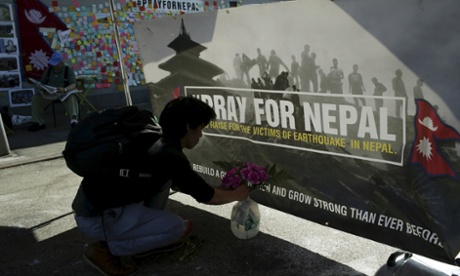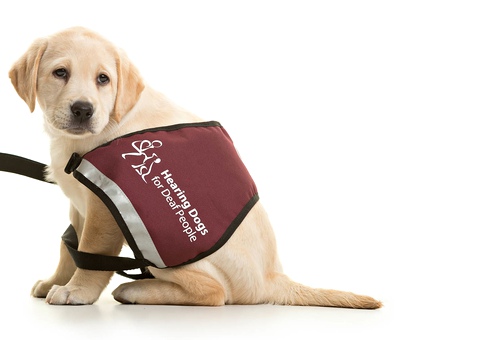Pity, guilt and shame are easy emotional levers to pull, and ones that have become tempting to indulge in as funding is squeezed. We have seen how one well-crafted message can raise awareness of a problem and increase donations in the blink of an eye – from the Kony 2012 film, which became a viral video sensation for Invisible Children, to the Ice Bucket Challenge, which raised more than £75m for motor neuron disease research.
But at the other end of the scale, Comic Relief’s fundraising video featuring pop singer Ed Sheeran and the street children of Liberia won the Radi-Aid “most offensive” campaign award in 2017. Run by the Norwegian Students and Academics International Assistance Fund, ( the contest aims to expose and discourage “poverty porn”.
Since Band Aid in 1984, non-profit organisations have faced scrutiny about approaches that raise awareness and money, but do not invite the public to question why poverty exists in the first place. The challenge for our sector is not just to get as many £5 texts as possible, but to transform goodwill into well-thought-out and sustained action. It means finding a balance between telling compelling stories, without trivialising people’s lives, or the long term prospects for social change.
Trust the public with nuance
Poverty, disease, injustice, and conflict are all heartbreaking. But sometimes the work needed to tackle them is not new, innovative, or sexy. It might be citizens demanding fundamental services like improved healthcare or better roads; or governments better managing their budgets; or pressing local agencies to be more responsive to public concerns.
Donating is a way to immediately banish the discomfort of encountering people in need. But organisations can invite their supporters to learn more and dig a little deeper. They can also help to challenge preconceived notions that donations will automatically bring relief to people in poverty – or that charity itself is the only way to address it.
Like Sheeran, no one wants to see children on the street in Liberia or anywhere else. The reasons why children are left without care are varied and, whether due to domestic, economic or social disruption, they are unique to each child’s situation. Comic Relief should have acknowledged that we must also support the local leaders who work to ensure a better future for these children. We must highlight the grey area between our interventions and the reality of how social change occurs. Trust the public with a little more nuance – they can handle it.
Deemphasise the role of our own organisations
The second step in striking this balance is to deemphasise the role of our own organisations. Charities can only do their work through partnerships. But non-profit organisations rarely highlight that they have a supportive role rather than a leading one. Instead, the equation too often presented to the public is that the organisation plus your money will equal the end of poverty.
This is not a full picture. Often our partners’ work is absolutely vital to our success. And even where we fund a project, campaign or initiative, we mustn’t take credit for other people’s hard work. For example, Oxfam America supported Ghana’s successful Oil 4 Food campaign in 2014, but its staff did not go door to door to collect 20,000 signatures across Ghana. They were part of a coalition of local partners who influenced the Ghanaian government to invest oil revenues into smallholder farmers.
Improve transparency
Many different things determine whether a particular campaign is successful, including good planning, sufficient budgets and realistic timescales. Unfortunately, transparency about what does not go well is still uncommon in our sector.
Making the link between poor results and the subsequent lessons learned can, perhaps paradoxically, inspire confidence in a charity. Every year for the past nine years, for example, the Canadian organisation Engineers Without Borders, which leads infrastructure development in Africa, has produced a failure report. Portray people with dignity and respect
Nobody likes to feel helpless, incapable, or desperate, and they certainly don’t want to be portrayed in that way in charities’ reports or advertising campaigns. Charities have a responsibility to root out damaging stereotypes that are antithetical to our missions or that contribute to white saviour syndrome. As Theo Sowa, chief executive of the African Women’s Development Fund has said: “When people portray us as victims, they don’t want to ask about solutions. Because people don’t ask victims for solutions.”
Solomé Lemma, co-founder of Africans in the Diaspora, urges people to consider who is speaking, for whom, about what and for what purpose, and to think about what might be missing.
We want everyone to see themselves as part of a future they can help build. My own organisation, Thousand Currents, is trying to do this by shifting our approach from creating content to producing it.
Changing the world is no easy undertaking. But the best stories lie with the courage, knowledge, skills, and determination of all citizens trying to better their lives, demand their rights, and hold those in power accountable. • Jennifer Lentfer is the director of communications at Thousand Currents and the creator of the blog how-matters.org.
Talk to us on Twitter via @Gdnvoluntary and join our community for your free monthly Guardian Voluntary Sector newsletter, with analysis and opinion sent direct to you on the first Thursday of the month.
Looking for a role in the not-for-profit sector, or need to recruit staff? Take a look at Guardian Jobs.










